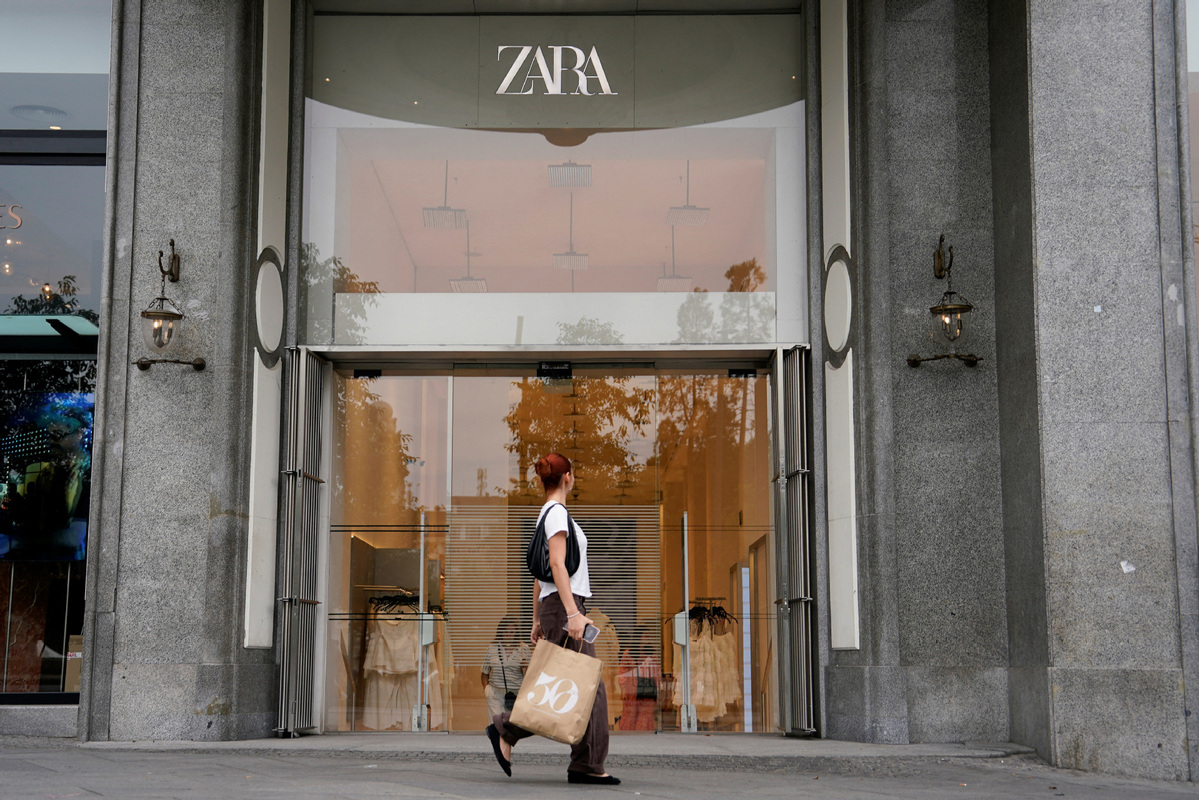Tariffs blamed for fashion giant's slowdown in Q1


United States tariffs have been blamed for disappointing first-quarter sales figures released by the parent company of fashion giant Zara on Wednesday.
Inditex fell short of market expectations for first-quarter sales and early summer trading, with tariffs and concern about inflation and a US economic slowdown the main reasons for the poor figures, according to analysts, who said enthusiasm for shopping had been dampened in the US and other major markets.
The value of the Spanish company's shares fell by 4.6 percent in early trading after the figures were released.
Gorka Garcia-Tapia, Inditex's head of investor relations, said in an investor call that the company will weather the current challenges.
"We have such a global presence, and therefore we have a lot of experience over the last few decades with regards to managing changes in tariff regimes," he said. "We have that focus on proximity sourcing. I think that all that, with regards to the US, really helps us out."
Inditex reported currency-adjusted revenue growth of 6 percent from May 1 to June 9. Analysts had expected 7.3 percent, which itself was well down on the 12 percent growth recorded this time last year.
Analysts had expected revenues for the first quarter ending April 30 to be around 8.36 billion euros ($9.56 billion) but they came in at 8.27 billion euros.
Net income increased 0.8 percent during the first quarter, to 1.3 billion euros.
Garcia-Tapia said the company expects its growth margin to remain stable during 2025.
Inditex described its performance as "solid" in a statement. The company described its performance as "very robust" in March, when it announced its previous round of results.
Several other fashion giants have experienced difficult first quarters in the wake of US President Donald Trump's announcement of new import taxes. Among them, H&M recorded sales growth of only 1 percent in March, compared to 4 percent in the same period the previous year.
Inditex CEO Oscar Garcia Maceiras has said the company is looking to fight back by taking its low-priced brand Lefties to new markets. And the company will also open new stores for its Oysho brand in the Netherlands, he added.
Inditex is Europe's largest fashion retailer and also owns the Pull & Bear, Stradivarius, and Massimo Dutti brands.
The company currently has 5,562 stores globally.
Trump's tariffs have not only impacted fashion sales in the US, they have led economists to cut the outlook for global growth, with many now expecting a 1 percent contraction in global GDP because of them.
And the Organisation for Economic Co-operation and Development said last week the tariffs will also hit the US economy, forcing growth to slow to 1.6 percent in 2025 after having been 2.8 percent last year.
earle@mail.chinadailyuk.com




































